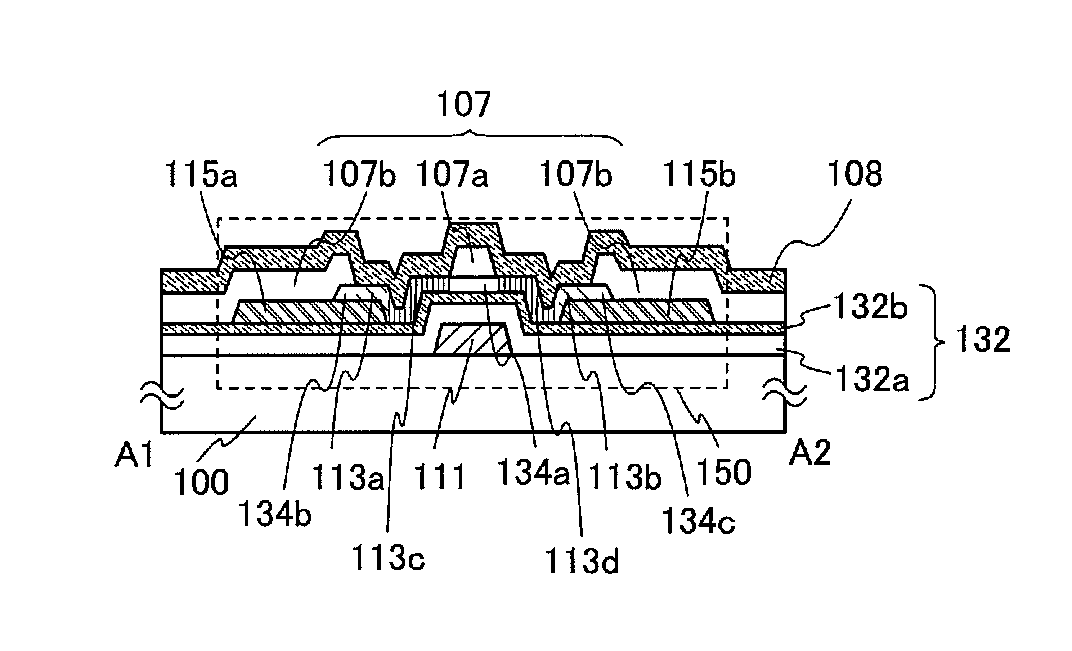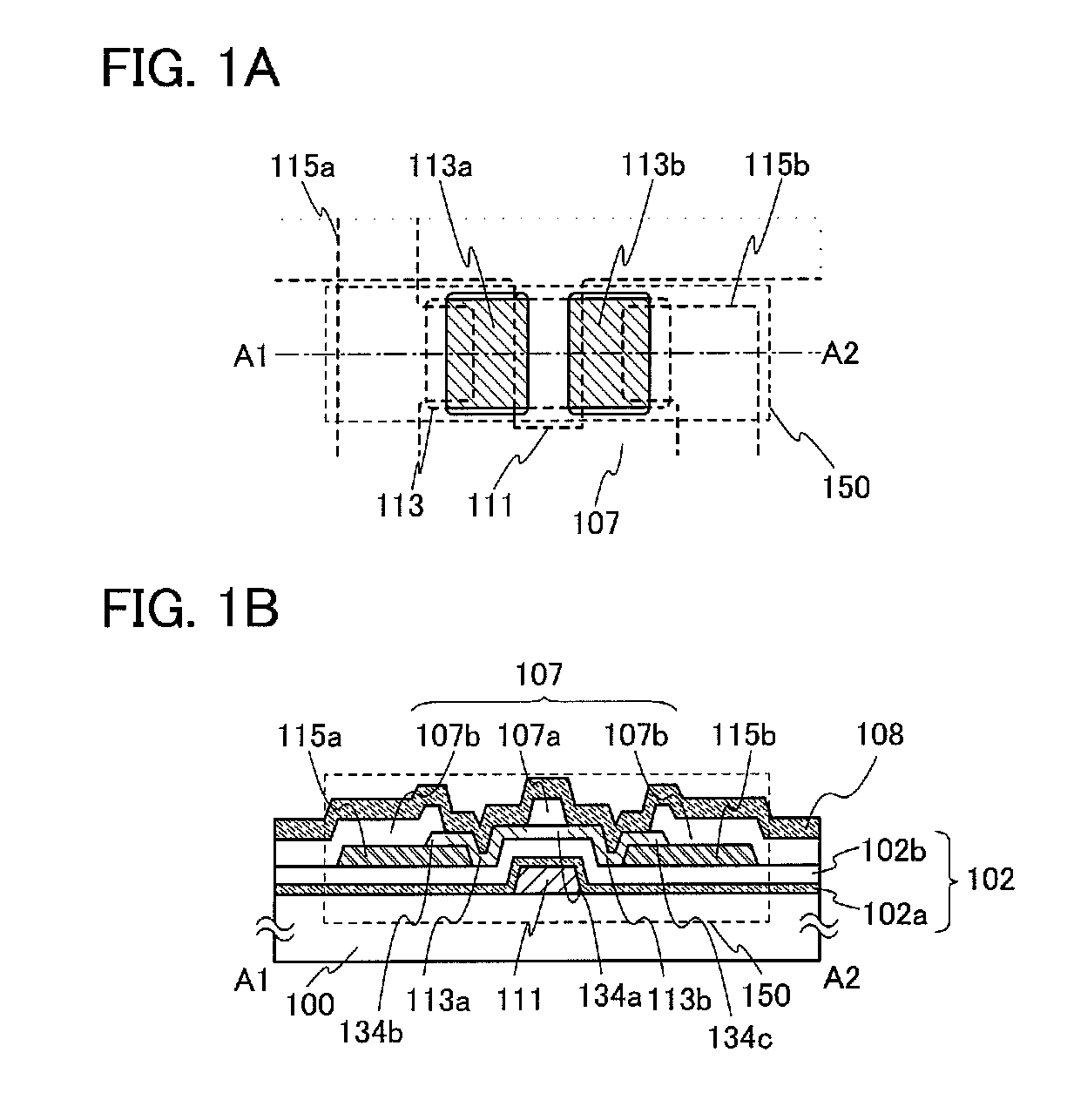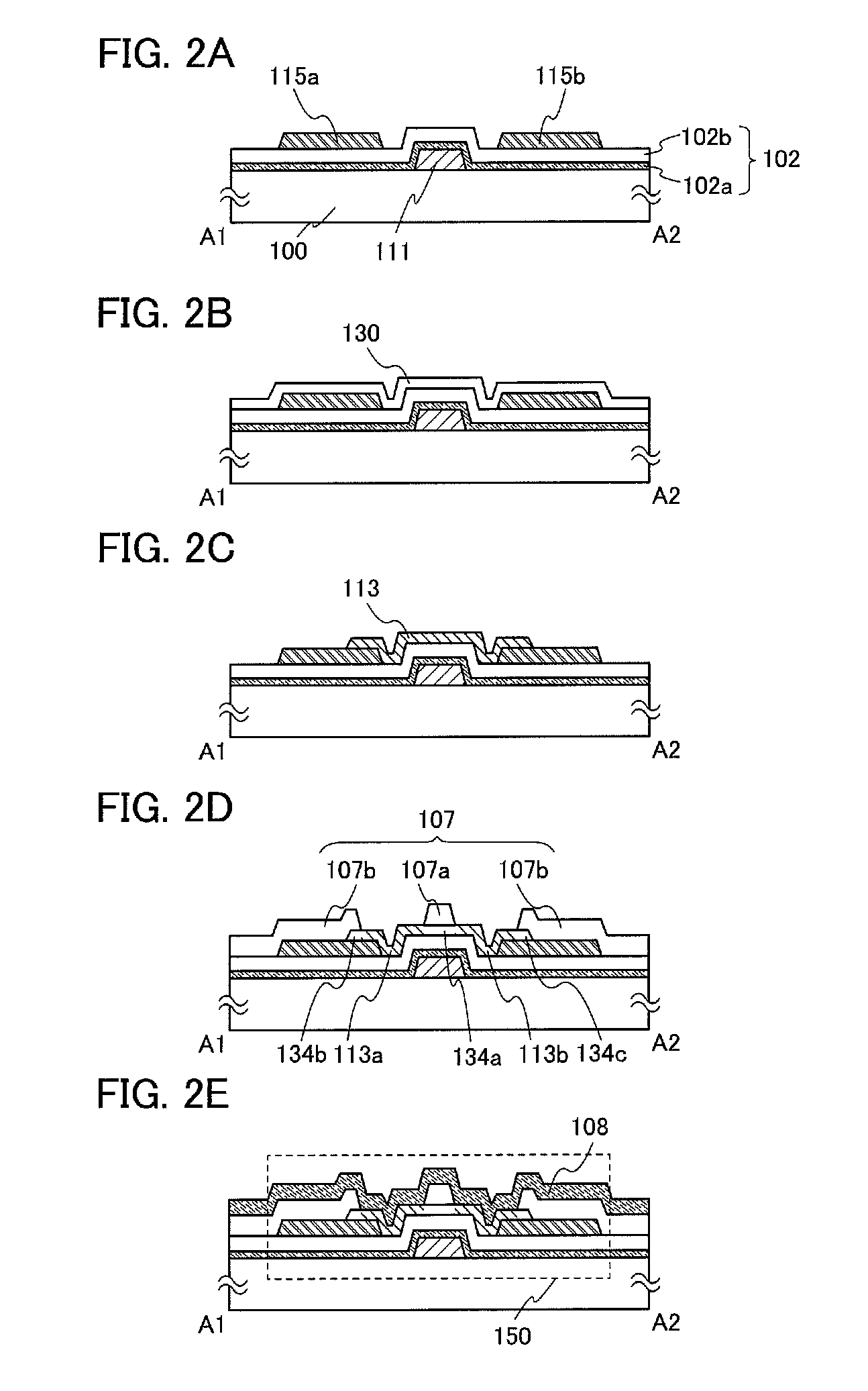Oxide semiconductor device
a semiconductor and oxide technology, applied in solid-state devices, electric lighting sources, electric light sources, etc., can solve the problems of increased power consumption or leakage current flow, delay in transmission of signals, and distortion of signal waveforms, so as to reduce parasitic capacitance and short channel length , the effect of easy breakag
- Summary
- Abstract
- Description
- Claims
- Application Information
AI Technical Summary
Benefits of technology
Problems solved by technology
Method used
Image
Examples
embodiment 1
[0078]In this embodiment, an example of a structure of a semiconductor device will be described with reference to FIGS. 1A and 1B. FIG. 1A is a plan view of a thin film transistor 150. FIG. 1B is a cross-sectional view taken along line A1-A2 in FIG. 1A. The thin film transistor 150 has a kind of bottom-gate structure, which is also called a bottom contact (or inverted coplanar) structure.
[0079]As in FIGS. 1A and 1B, the thin film transistor 150 includes a gate electrode layer 111 over a substrate 100 with an insulating surface, a gate insulating layer 102 over the gate electrode layer 111, a source electrode layer 115a and a drain electrode layer 115b over the gate insulating layer 102, an oxide semiconductor layer 113 over the gate insulating layer 102 and the gate electrode layer 111, an oxide insulating layer 107 over the oxide semiconductor layer 113, and a protective insulating layer 108 over the oxide insulating layer 107 and the oxide semiconductor layer 113. Here, the source...
embodiment 2
[0109]A mode of a manufacturing method for the semiconductor device described in Embodiment 1 will be described with reference to FIGS. 2A to 2E.
[0110]First, a conductive film or metal conductive film which transmits visible light is formed over the substrate 100 having an insulating surface, and then a first photolithography step is performed to form the gate electrode layer 111. Note that a resist mask may be formed by an ink jetting method. Formation of the resist mask by an ink jetting method needs no photomask; thus, manufacturing cost can be reduced.
[0111]Although there is no particular limitation on a substrate which can be used as the substrate 100 having an insulating surface, it is necessary that the substrate have at least enough heat resistance to withstand heat treatment performed later. For example, a glass substrate can be used as the substrate 100 having an insulating surface.
[0112]As a glass substrate, if the temperature of the heat treatment to be performed later i...
embodiment 3
[0146]In this embodiment, a description will be provided of an example in which an active matrix liquid crystal display device is manufactured by using the thin film transistor described in Embodiment 1 to form a pixel portion and a driver circuit over one substrate.
[0147]FIG. 3 illustrates an example of a cross-sectional structure of the active matrix substrate.
[0148]In this embodiment, a thin film transistor in a pixel portion, a thin film transistor in a driver circuit, a storage capacitor, a gate wiring, a terminal portion of source wiring are described with reference to FIG. 3. The capacitor, the gate wiring, and the terminal portion of the source wiring can be formed in the same manufacturing steps as in Embodiment 2, up to the step of the formation of a protective insulating layer 203 and can be manufactured without an increase in the number of photomasks and an increase in the number of steps. Further, in a portion serving as a display region in the pixel portion, all the ga...
PUM
 Login to View More
Login to View More Abstract
Description
Claims
Application Information
 Login to View More
Login to View More - R&D
- Intellectual Property
- Life Sciences
- Materials
- Tech Scout
- Unparalleled Data Quality
- Higher Quality Content
- 60% Fewer Hallucinations
Browse by: Latest US Patents, China's latest patents, Technical Efficacy Thesaurus, Application Domain, Technology Topic, Popular Technical Reports.
© 2025 PatSnap. All rights reserved.Legal|Privacy policy|Modern Slavery Act Transparency Statement|Sitemap|About US| Contact US: help@patsnap.com



